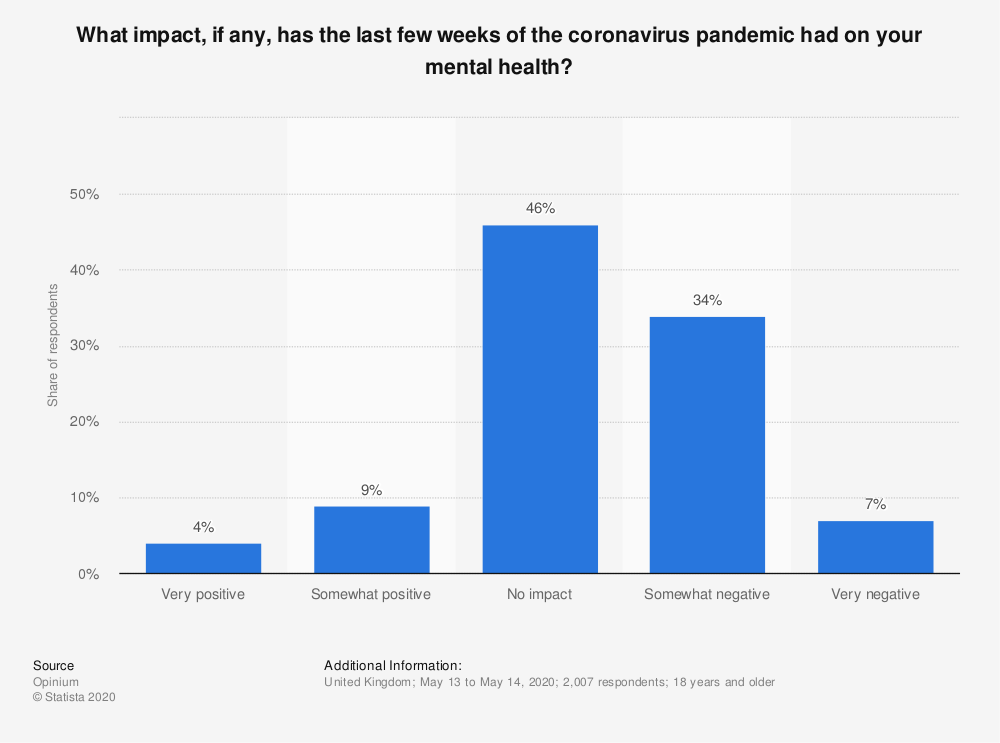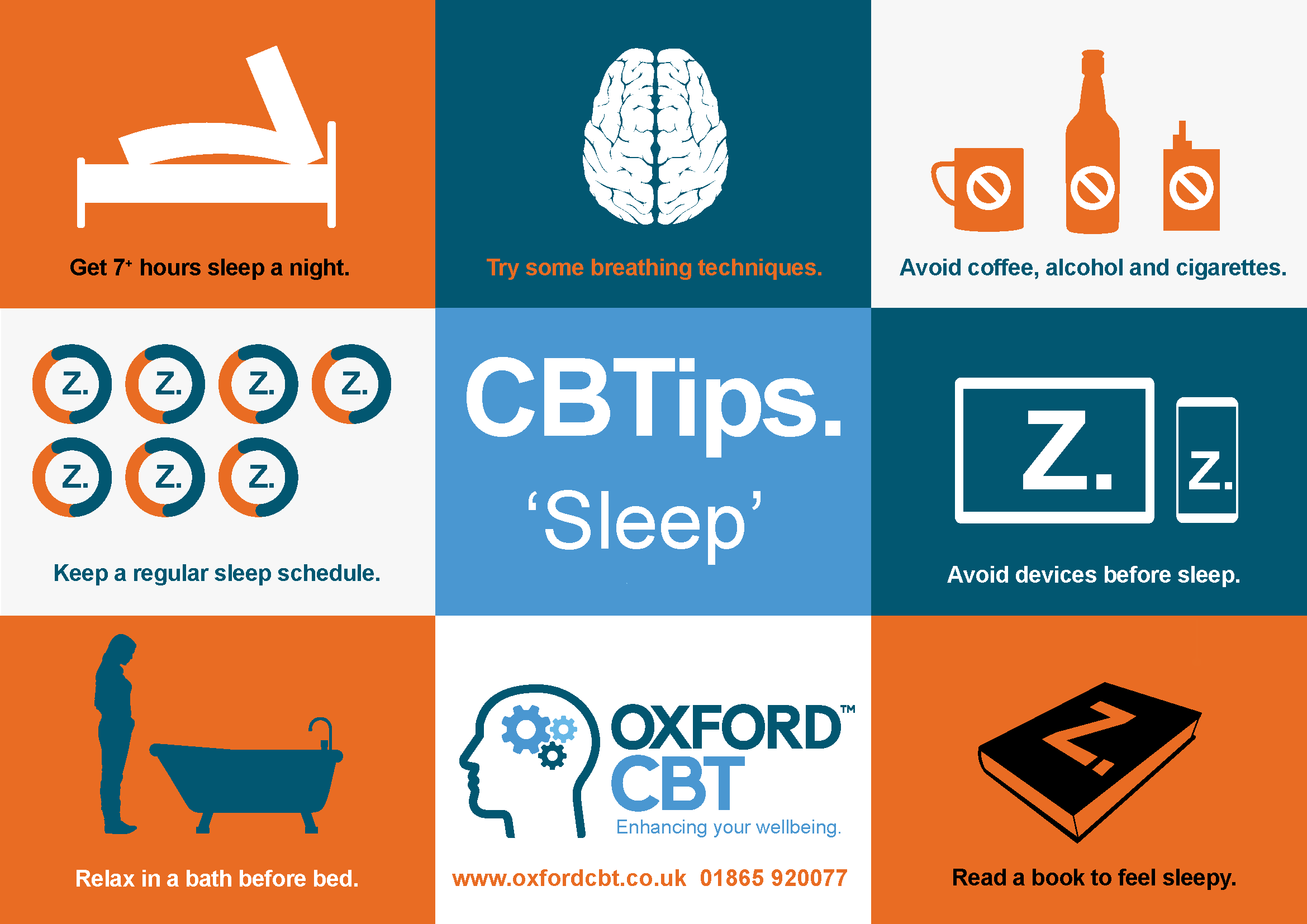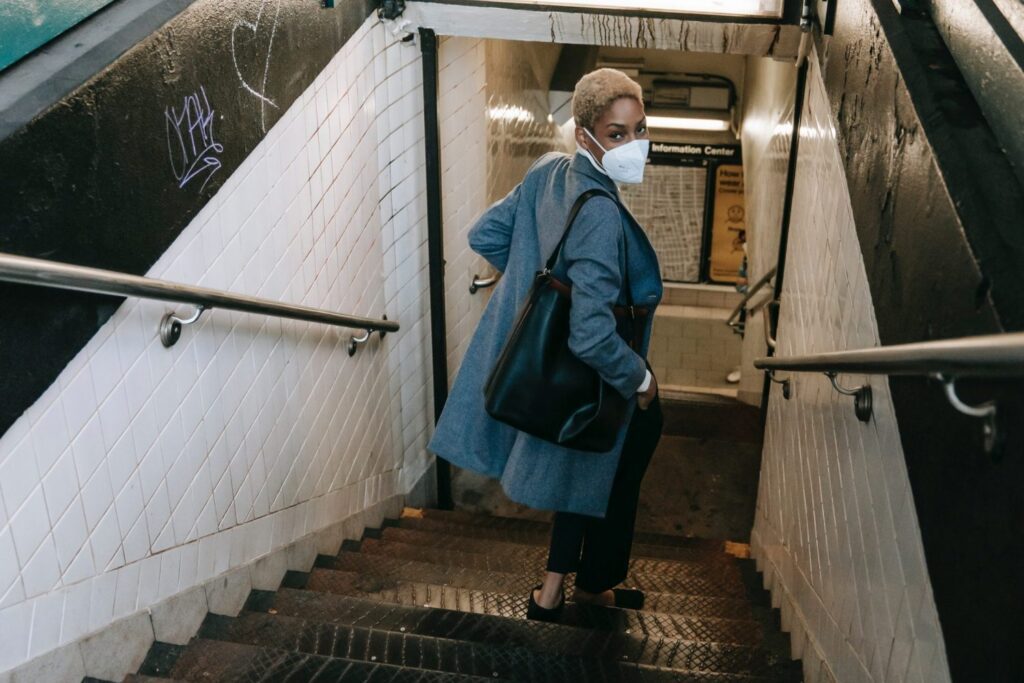All of us have spent the majority of the last 12 months locked away inside, not seeing anybody outside of our household. Even when lockdown slightly eased towards the end of 2020, groups of people were still having to shield or isolate. Now there is a light at the end of the tunnel with the vaccine, infection rates dropping and lockdown restrictions easing. With life returning to some resemblance of normal this brings with it excitement, it also brings with it anxiety, stress and worry. We have compiled some tips to help us all deal with the social anxiety as lockdown eases and how to ease ourselves back into normal life.

According to a survey carried out in the UK in May 2020, it was found that 34 percent of respondents reported that the coronavirus pandemic has has a somewhat negative impact on their mental health. A further seven percent of respondents said the pandemic has had a very negative impact on their mental health, although 46 percent reported no impact.
What Is Social Anxiety?
People who are experiencing social anxiety can feel like they are being judged when they are with other people and in social situations. Even though they know that the feelings are unjustified, that doesn’t make the feelings go away. Symptoms can include worrying about everyday situations, avoiding social situations, fear of being criticised and sometimes panic attacks. Myths about social anxiety. Here are our top 4 ways to cope as lockdown eases:
#1 Allow Yourself To Feel Scared
Although it may seem to you that other people around you are not worried or scared, it is ok to feel these things yourself. This hasn’t happened to many people in their lives before so no one knows what is the “right way” to think, feel or act.
Share your thoughts and feelings with the loved ones around you so that they know how you are feeling and can support you. Many of your close friends and family will be feeling the same way and will be happy that you have opened up the conversation so that they can admit how they are feeling too.
You may feel embarrassed to be cautious if you used to be a very outgoing person, but it is totally acceptable to feel overwhelmed by the changes that are happening around us.
#2 Ease Yourself Back Into It
Just because a date has been given to us by the government to say when we are allowed to mix with people, indoors and then outdoors, this doesn’t mean that you have to arrange meetings with people on those days and go ahead full steam with socialising. All of us will need to assess situations before they happen and decide if it is the right thing for us at that time.
Start by spending time with people who are in your inner circle as these are the people who you feel the most comfortable with and who you can trust. It is OK to say no to a social gathering if you feel uncomfortable with it.
Initiate calls with friends first over Zoom or video calls and then build up to spending time outside with people first, especially as the weather is improving. Start reaching out to people you enjoy being with but may feel nervous around and need warming up to. Eventually, expand your circle to include people and situations that make you anxious.
#3 Practice Self Care
Self-care means the practice of taking an active role in protecting one’s own well-being and happiness, in particular during periods of stress. Taking care of ourselves is just as important as taking care of our loved ones. It is a really tricky thing to do, to set aside time just for us but it is important that we do. Spend time doing some of the things listed below:
– Get outside for some exercise for your mental health.
– Read a book/magazine
– Practice breathing exercises
– Listen to music
– Drink lots of water
– Try to get regular sleep
People who work proactively on their mental health are better able to handle the unknowns. We already have the tools in place so that when something challenging is thrown at us we already have the core stables in place to help us deal with the challenges and social anxiety.

#4 Think About Situations Beforehand
If there is an upcoming situation for you to attend after lockdown eases it may help if you imagine the situation beforehand. Try to mentally plan your meet up for example and think about what you would like to happen. It may be awkward at first to think about what you will say when you see people for the first time but it will get easier. And thinking about it beforehand will make it feel less awkward when it happens in person. This will also help you to feel more in control which can help relieve anxiety.
Another way to help you visualize situations is to challenge your internal negative thoughts. Instead of having negative thoughts such as “These people won’t like me and they are looking at me” try thinking “We have all been in lockdown, let’s share funny stories and they will like me”.
All clinicians at Oxford CBT are Cognitive Behavioural Therapists or Psychologists. All offering evidence-based interventions and support for a range of issues for both young people and adults. Please get in touch for more information or call us on 01865 920077.



